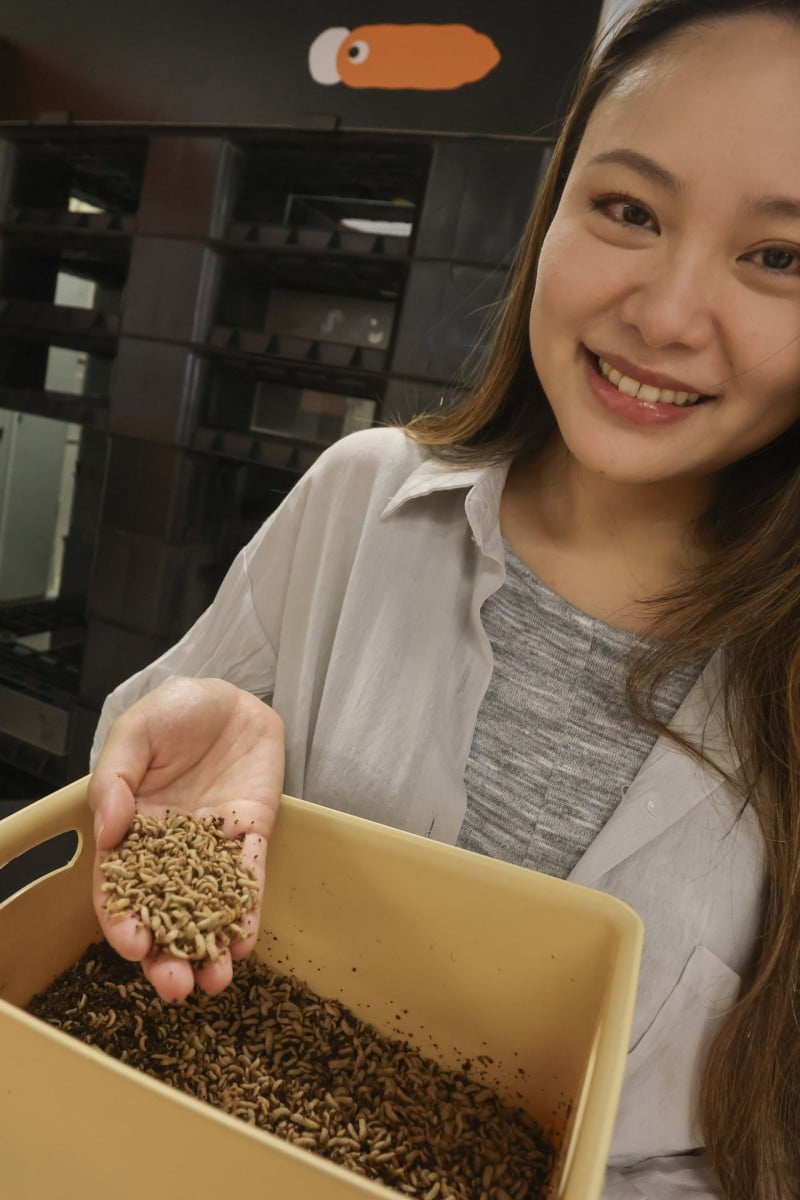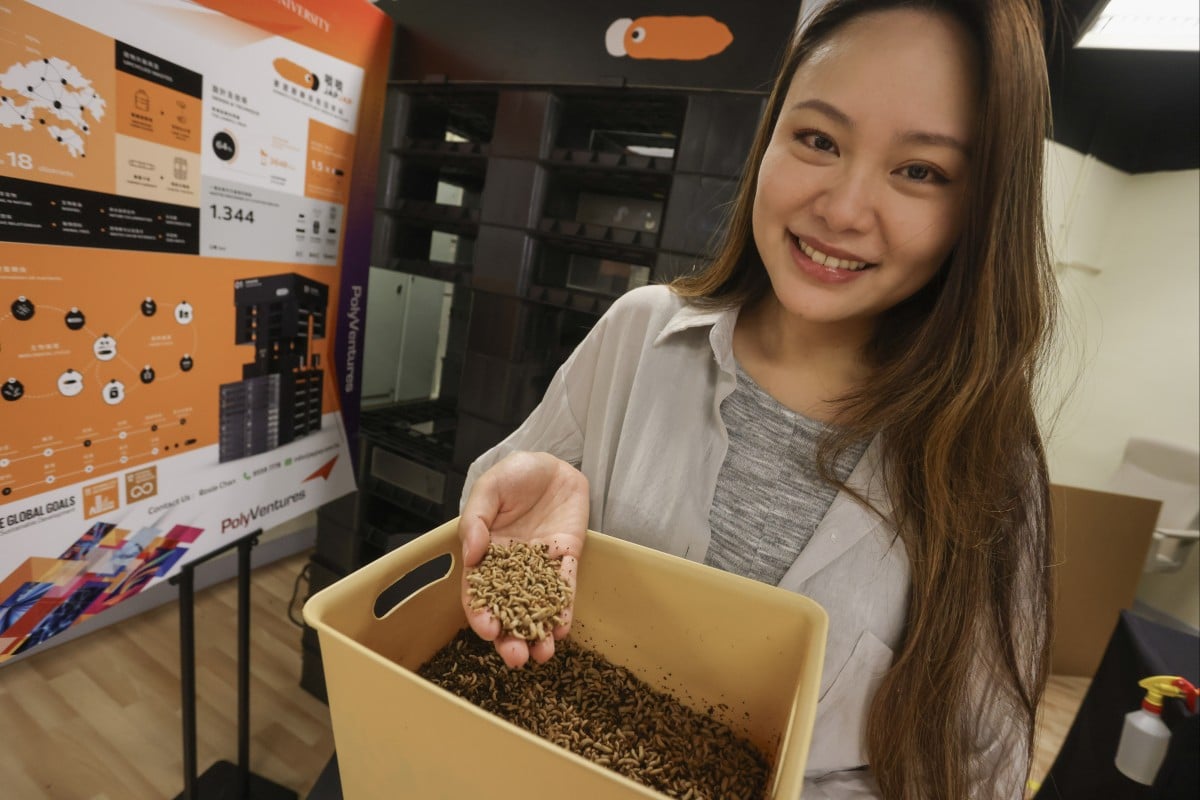
Social enterprise in Hong Kong uses insects to turn food waste into compost for plants
Founder Rosie Chan hopes to teach more people about the importance of finding sustainable ways to treat rubbish
 Rosie Chan says people should not be so fearful of black soldier flies. Photo: Jonathan Wong
Rosie Chan says people should not be so fearful of black soldier flies. Photo: Jonathan WongWhen she was a student at the Hong Kong Polytechnic University (PolyU), Rosie Chan was visiting Wan Chai market for her final project. There, she saw how people threw away piles of food and wooden pallets.
It inspired an idea that would eventually become a social enterprise. Last year, Chan started Japjap to find better ways to handle food waste.
Her system uses black soldier fly larvae to turn food waste into fertiliser. The flies can also be made into compost, oil or food for animals. This process is already being used in places like Britain and Singapore.
Chan’s system uses upcycled pallets to hold the black soldier flies.
“We want to move away from ... waste processing methods that generate pollutants and greenhouse gases,” she said, referring to Hong Kong’s landfills.
“By processing food waste with insects, we turn it into useful products, returning nutrients from leftovers back into the soil.”
From office jobs to a social enterprise
Chan’s career path was not a traditional one.
She only completed Form Five and scored just three marks on her university entrance exams. After secondary school, Chan tried many jobs but was not happy in them.
“I was just helping my boss make more money, and it felt meaningless. I knew I was hardworking, but I felt lost because I didn’t know how to use my strengths,” she said.
After working for eight years, Chan quit her job to travel and discovered her passion for interior design. To make up for her low score on the university entrance exam, she enrolled in courses at the Hong Kong College of Technology and HKU Space.
Then, she applied for a bachelor’s degree at PolyU. Although she only had enough money to pay for one semester, she was determined to succeed. She studied hard and earned a scholarship.
Soon, she discovered her passion for sustainable design. Now, she is completing a PhD at PolyU while working on Japjap.
The need for education
One of Japjap’s biggest problems is people’s fear of black soldier flies.
“But why? They don’t have teeth. They don’t bite, and they’re cleaner than you think,” Chan said.
“That’s why education is so important, especially starting with children.”
In 2023, Japjap’s first recycling station opened at Yan Chai Hospital Lan Chi Pat Memorial Secondary School. Chan hopes to expand it to more places soon.
At the school in Tseung Kwan O, Chan shows pupils how to handle their food waste before feeding it to the black soldier fly larvae. She also leads these science workshops in other schools.
“The first activity is usually to observe and interact with insects. Once kids have touched them, they’re no longer afraid,” she said.
“Some are curious – they’ll catch, observe and want to learn about the bugs. Even those who are initially scared often become more comfortable after seeing their friends interact with them.”
Chan also leads farm visits for people of all ages to teach them about organic farming. They pick fruits or vegetables, make food and feed insects with the leftovers.
“This sparks curiosity and questions – like whether insects can eat certain items or even if they themselves can eat insects,” Chan said.
By the end, people see the full cycle: food waste becomes compost that feeds new plants.
To test your understanding of this story, download our printable worksheet or answer the questions in the quiz below.
